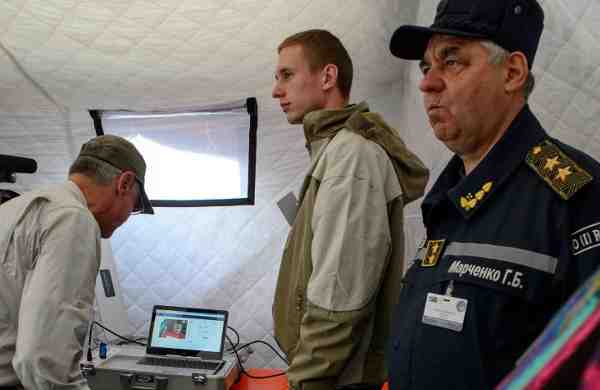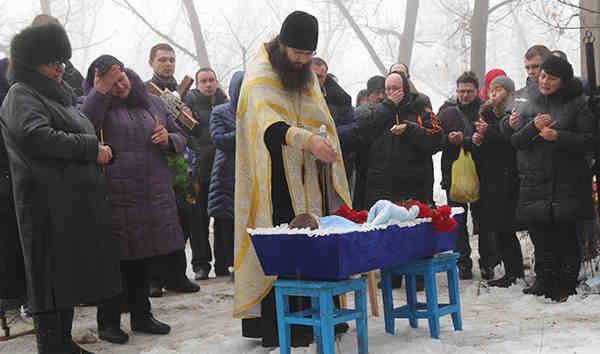NATO Tests Telemedicine at Conflict in Eastern Ukraine

The 28-nation treaty organization is developing a telemedicine system to improve access to healthcare during emergency situations.
Working with Avera Health’s telemedicine center in South Dakota, NATO (North Atlantic Treaty Organization) officials saw a demonstration of the Transportable Exam Station (TES).
They chose to use the TES during the Ukraine field test that involved more than a thousand rescue workers from 34 countries. It was the first time independent national telemedicine systems interacted to provide medical aid in a simulated disaster.
[ Who Killed Pro-Russian Journalist in Kiev? ]
“This project is aiming at the creation of the multinational capacity in responding to major situations, disasters, civil emergencies, in countries where we would send our teams, and they may need to consult experienced distant physicians,” said Romanian Interior Ministry official Dr. Rae Arafat, the NATO director for the project.
“When presented with the challenges NATO teams would experience, GlobalMed immediately engaged with proven, easy to use solutions that eliminate confusion and delays in care,” said Joel E. Barthelemy, founder and CEO of GlobalMed.
[ Tablet-Based Mobile Health Care for Ukraine ]
The multinational telemedicine system will be used in both civilian and military applications, including crisis situations such as the conflict in eastern Ukraine. The TES will allow first responders to connect to medical specialists in case of an emergency, even in remote areas.
“The telemedicine project has high-level political backing, and involves an incredible pool of scientists and experts,” said Ambassador Sorin Ducaru, Assistant Secretary General of the NATO Emerging Security Challenges Division. “It aims to save lives in emergency situations, as well as in military operations.”
[ RMN Foundation School Students Depict Dengue with Drawings ]
The TES and its integrated medical devices from GlobalMed include: 12-Lead ECG, USB Vital Signs Monitor, and a TotalExam 3 examination camera.
They make it possible for an international network of medical specialists to assess a patient, determine the diagnosis and provide real-time treatment recommendations.
A NATO statement says the system “represents a major step forward in live, real-time incident response health service delivery.”
GlobalMed offers integrated telemedicine solutions serving top medical institutions, corporations and government organizations worldwide.
In the picture above: Ronald Poropatich, MD, Executive Director of the Center for Military Medicine Research, Health Sciences at the University of Pittsburgh, uses the TES to communicate with a remote specialist during the NATO exercise in Ukraine.






